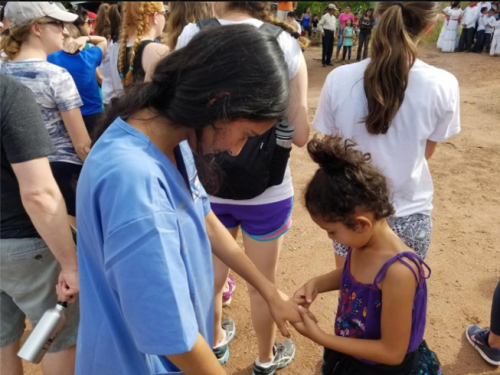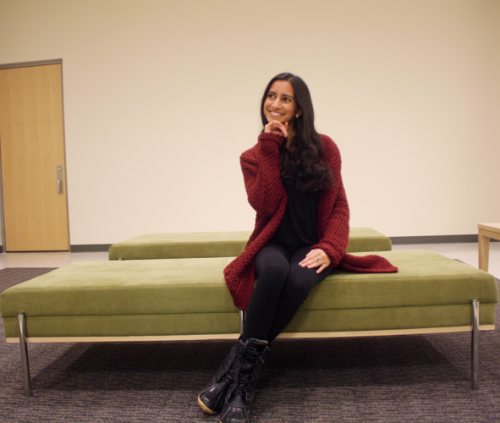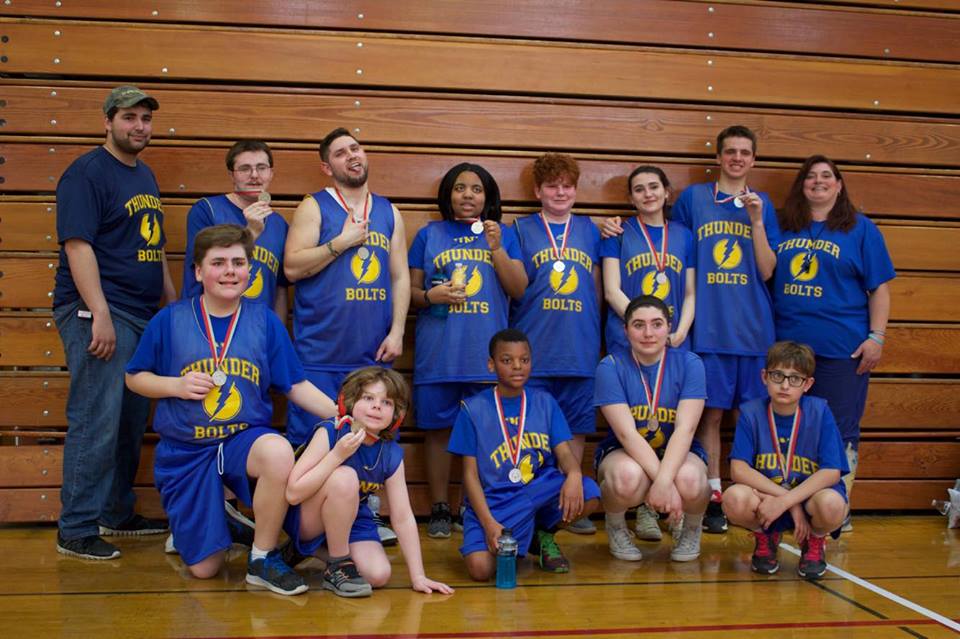
As the president of Global Medical Brigades at SUNY New Paltz, Trish Chabria leads her team to help rural communities while also being a full-time student. Every summer, Chabria, a third-year student with a double major in psychology and biology, joins the rest of the brigade as they travel to Honduras, Nicaragua, Ghana and Panama to work alongside doctors.
The Global Medical Brigades is an on-campus club aimed at building sustainable communities and providing reliable healthcare. Members travel under the supervision of certified health practitioners to train communities in public health, donate supplies and assist in clinics. We had the opportunity to speak with their president to learn about herself and the brigade.
Why did you become the president?
I had to! The club had basically been absolved at that point. All of the previous eboard members weren’t doing it anymore. If I didn’t take it over, the club wouldn’t exist anymore.
Where did you go on your first mission and what was it like?
We went to Honduras. I was a small child, and it was the first time traveling by myself. But as soon as I got there, it was like an immediate family.
Can you explain what a normal day is like in Honduras?
Clinic days, we woke up at 6 a.m. Showered if you wanted, who cares. They gave us traditional Honduran food to eat. Then we travelled an hour to the clinic site to work for 9 to 10 hours a day. We shadowed doctors, got hands-on experience and helped over 300 people a day at different stations like the dentist, O.B., charla and consultation.
What are you allowed to do as students?
As students we cannot diagnose anyone but we participate in triage, taking medical and family history and vitals. We also educate local children and adults about hygiene and provide them with a kits containing the essentials.
Do you receive a lot help from the school?
No. It’s not fair. It’s debilitating to the club. It is the reason why the club fell apart in the first place. Bringing it back up was the hardest thing I had to do in my life. We receive $1,600 from the school but it’s not enough. We try to get more money through fundraising and we host one to two large events each month. We also have a GoFundMe page.
How do you prepare and train before your trip?
We train at our club meetings on Wednesdays in the Student Union Building Room 401. During the meetings we learn how to take vitals-pulse, blood pressure and other things like that.
Prestigious schools like Harvard and Columbia University are involved with Global Medical Brigades. Do you feel any sort of pressure meeting the same goals with these types of schools?
It was hard, we’re not medical practitioners. We had to reach out to a lot of hospitals, family care institutes and everyone around us to get these supplies. I don’t see a difference between SUNY New Paltz or Harvard. We work really hard to meet these goals.
Did anything happen when you were in Honduras that inspired you?
This women came in, late forties, and we had to tell her that she couldn’t have anymore kids because of her age and did not have access to proper care. She started to cry because she was convinced that her husband wouldn’t want to be with her and that it was her purpose in life to have kids. Then the most amazing interaction happened. Erzo, the doctor, gave her a self-esteem talk and reassured her that her purpose in life is not only to have kids.
After she left, Erzo asked us, “Do you know why I tell people to call me Erzo and not Dr. Rozo? Because at the end of the day, I’m Erzo first, I was Erzo before and I’m still Erzo now. That’s when I knew that I wanted to be a doctor.
You can’t be a doctor in this field unless you put yourself in other people’s shoes. There’s just no way.”-Trish Chabria
Tell me something special about the people you met in Honduras.
Their passion to help others. The staff members’ willingness to do this, which doesn’t even pay well, is incredible in itself. A lot of them were overqualified too. Paula was a dentist, Isaac went to pre-law and Mario was an economics major.
Have your career plans changed since you were younger?
For a really long time I wanted to be a teacher. But I realized that I liked science. The fundamental concept did not change because through medicine you still teach people—you communicate and give back to the community.
At what moment did you realize that you wanted to work in the medical field?
More recently, I came to the realization that this is my own decision because my parents have really pushed me towards medicine. So, it’s instilled.
How do you do it, Trish? How does a 20 year-old do all of this? Clubs, class, social life?
It’s not easy. I also don’t sleep a lot. Sometimes I get this motivated energy and I feel like I can do everything and it’ll be fine. But sometimes I crash and I have to recharge. My social relationships are not strong because I’m not so active. But I’m finding the balance now. I’m starting to prioritize people.
What are your future goals?
Med school. I know that I want to become a doctor, but I also know that I want to continue working on my friendships. A support system is what I need and that’s what my goal is right now. I need to strengthen that part in my life.
For more information visit:
Facebook:@SunyNewPaltzGlobalMedicalBrigadesClub
Instagram: Globalmedicalbrigadesnp
If you’re interested in donating money to the New Paltz Global Medical Brigades visit: https://www.gofundme.com/gmbnp
By Estefany López
